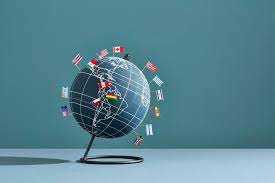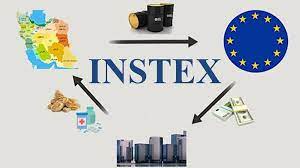The impact of the U.S. dollar on the international community
Nov 17, 2023 By Edgar T Reeves
As a medium of exchange, the currency avoids the demand coupling between the two parties, which is a must in barter trade, and greatly promotes the development of human society and economy. It can be said that currency is one of the greatest inventions of human society. No matter what the form of currency is, and no matter how its function is extended, its role as a medium of exchange is still the most basic and most important.
When we expand our vision to the world, transactions between different economies also require a medium of exchange. Precious metals such as gold and silver, which are generally accepted by various economies, once played an important role as a medium of exchange. And an important feature of precious metals such as gold and silver is non-sovereignty. However, with the gradual withdrawal of precious metals from the stage of currency competition, and the in-depth development of currency sovereignty and paper currency, the colorful currencies begin to delineate the regional scope of their respective roles.

Ascending to the international level, in order to facilitate transactions between different economies, a universally recognized medium of exchange is needed. In the absence of non-sovereign international currencies, the functions of some currencies need to be extended beyond their own countries to become the so-called international currencies. Since modern times, the British pound, the U.S. dollar, the German mark, the euro, the Japanese yen and so on have all played roles as international currencies in varying degrees.
From the perspective of a single economy entity, currency, as a medium of exchange, has the attributes of the public good—that is, under the premise of legal compliance, someone has the right to use currency for transactions without being hindered by others. Ideally, international currencies should also have the attributes of public goods. When market entities want to use international currencies for transactions, they should not be disturbed.
But the ideal is just an "ideal" after all, the reality is another scene. Since World War II, the U.S. dollar, as the most important international currency, has an extremely stable position. Although other currencies have been given the task of challenging the status of the U.S. dollar, they have not succeeded. Of course, although this task has not been successfully completed in the past, which does not mean that it will not succeed in the future. It is not necessary to overturn the U.S. dollar, and it is not impossible for multiple international currencies to coexist. However, as Robert Mundell, the Nobel Prize winner in economics and the "father of the euro," said, the optimal number of international currencies is odd and less than three.
The internationalization of the U.S. dollar has brought many privileges to the United States. These arrogant privileges have aroused the dissatisfaction among many people, which include the former French President Charles de Gaulle. From a cost-benefit point of view, currency internationalization will bring both costs and benefits. But if the market choice which is under objective conditions promotes a currency to become an international currency, it is blameless that it will bring certain benefits to the country where the currency is located. However, when the issuing country of the international currency takes the international role played by its currency as a tool and weaponizes it, using it without restraint for achieving political purposes—then the international status of this currency is questionable.
In recent years, the United States has recognized the unique role of the U.S. dollar in global transactions, and it has frequently used the U.S. dollar as a weapon to impose sanctions on other countries and cut off their channels of using the U.S. dollar for transactions, which has led to the suspension of international trade in the sanctioned countries and seriously affected their economic development. After all, the transaction is a business for both parties. When the United States uses the U.S. dollar to sanction an economy, it also hurts other economies, which is the so-called secondary sanctions. This has led to many economies complaining about the dollar sanctions, and has also prompted some economies to seek other international currencies and break away from the U.S. dollar settlement system.

For example, in order to circumvent the sanctions imposed by the United States on Iran, Europe has supported the establishment of the Instrument in Support of Trade Exchanges (INSTEX)—namely European exporters export products to Iran, importers import products from Iran, and then European exporters and importers wind up the account in Europe. In the same way, Iranian exporters and importers settle accounts in Iran. In this way, there is no need for capital flow, just the flow of goods can achieve the purpose of transaction. Of course, it remains to be seen how effective this mechanism will be. Another example is that recently, oil exporting countries such as Russia have gradually sought to use other currencies for settlement when exporting oil, so as to avoid the negative impact of U.S. dollar sanctions.
There is no doubt that international currencies have played an important role in promoting international transactions. And there is even no denying that when a few currencies play an international role, the trouble of exchange rate fluctuations between different currencies and the need to reserve different currencies is eliminated. But as our daily experiences tell us, when you rely heavily on something, the sudden disappearance of these things will have an unbearable weight on you. This is the same for international currencies—when a currency which countries heavily rely on is suddenly cut off, their international transactions will be suspended and their economy will be in trouble!
Regardless of the angle of the view, the international status of the U.S. dollar will be relatively stable in the short term. For us as individuals, after we have experienced profound lessons, we will learn from them, and finally these experience we learned can even be used for a lifetime. The same is true for countries—when sanctions have an impact on their economy, they will find ways to stay away from sanctions. When the alternative path has been taken shape and can better replace the original path, then there will be no need to return to the original path.

Tips on How to Start Saving Money
Oct 17, 2023
Regarding financial planning, getting started may be one of the most challenging aspects. This step-by-step method can assist you in developing a strategy that is straightforward and attainable, which will allow you to save money for all of your short-term and long-term goals

What is the National Association of Realtors?
Oct 01, 2023
The NAR, or the National Association of Realtors, is a huge business group. Members include appraisers, property managers, and real estate agents. These people are responsible for establishing and upholding norms of conduct in the real estate industry

Everything You Need to Know About Unsecured Business Loans
Jan 31, 2024
Unsecured business loans enable companies to get the money they need without having to pledge assets (collateral) that the lender can take back if they default. Borrowers are not excused from paying back loans because they need collateral.

Finding the Best Online Brokers for Mutual Funds: Your Guide to Investing Success
Jan 16, 2024
Looking to invest in mutual funds? Let us help you find the best online brokers with our comprehensive guide.

The impact of the U.S. dollar on the international community
Nov 17, 2023
undefined

Better Investing, Which is More Advantageous: Stocks or Real Estate?
Feb 23, 2024
Are you trying to figure out where to make your assets? The debate between real estate vs stocks can be confusing and hard. Read to make your decision based on pros and cons.

Analyzing Erie's Car Insurance For The Year 2022
Nov 07, 2023
Erie Insurance was founded in 1925. It gives all the typical auto insurance coverage, but its advantages stand out. With high customer satisfaction and financial metrics, it lacks chat and mobile tools but offers 24/7 help

Protect Your 401k
Jan 23, 2024
It is easy to overlook that the current favorable conditions will not last indefinitely while stock prices are climbing during a bull market.

Distributable Net Income
Oct 24, 2023
Distributable net income refers to income distributed to the trust's beneficiaries.

Quota Share Treaty Demystified: Definition and Operational Insights
May 08, 2024
Explore the essentials of Quota Share Treaties in the insurance industry, their impact, benefits, and the future outlook in risk management and reinsurance.

Are you curious about what NEA Credit Cards are? If yes, then be sure to read out this article as it's just for you
Jan 21, 2024
Are you curious about what NEA Credit Cards are? If yes, then be sure to read out this article as it's just for you

Guide to USDA Construction Loans: All You Need to Know
Nov 09, 2023
Set on the journey of building your dream home with confidence with our comprehensive guide to USDA Construction Loans